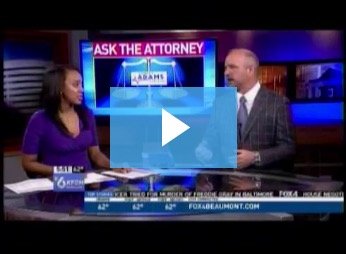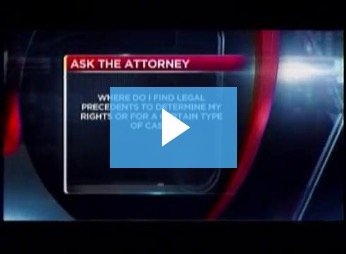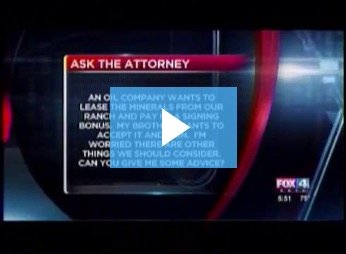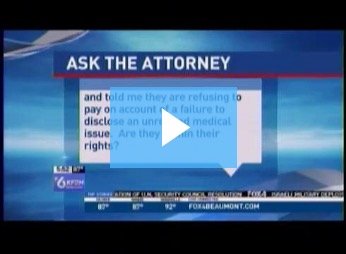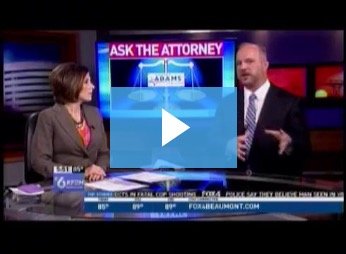Product Liability Claims in Texas: Holding Manufacturers Accountable
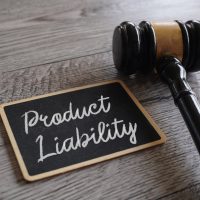 Defective or dangerous products can cause serious injury, long-term damage, and economic hardship. Whether it’s a faulty appliance, a defective auto part, a dangerous toy, or a medical device that malfunctions, people who suffer harm deserve justice. In Texas, there is a legal framework designed to hold manufacturers, and sometimes sellers or distributors, accountable when products fail to live up to safety expectations. Knowing how product liability works can make all the difference if you’re a victim or family member of somebody harmed by a product defect. If you or a loved one has been hurt by a defective product in Texas, contact Gilbert Adams Law Offices in Beaumont to speak with an experienced and dedicated Texas product liability lawyer.
Defective or dangerous products can cause serious injury, long-term damage, and economic hardship. Whether it’s a faulty appliance, a defective auto part, a dangerous toy, or a medical device that malfunctions, people who suffer harm deserve justice. In Texas, there is a legal framework designed to hold manufacturers, and sometimes sellers or distributors, accountable when products fail to live up to safety expectations. Knowing how product liability works can make all the difference if you’re a victim or family member of somebody harmed by a product defect. If you or a loved one has been hurt by a defective product in Texas, contact Gilbert Adams Law Offices in Beaumont to speak with an experienced and dedicated Texas product liability lawyer.
What Is Product Liability in Texas?
Product liability refers to legal claims arising when a product causes harm due to a defect. In Texas, the governing law is found in Chapter 82 of the Texas Civil Practice & Remedies Code. Under that law, a “product liability action” means any action against a manufacturer or seller for recovery of damages due to personal injury, death, or property damage caused by a defective product, whether the claim is based on strict liability, negligence, misrepresentation, breach of warranty, or any combination of applicable legal theories.
A “manufacturer” is broadly defined to include designers, assemblers, processors, fabricators, and anyone who places a product or component into the stream of commerce. A “seller” includes distributors or retailers who place those products in the marketplace. The law creates different rules depending on whether the defendant manufactured the product, sold it, or did both.
Types of Defects That Can Lead to Liability
There are several kinds of defects that may support a product liability claim in Texas, including manufacturing defects, design defects, and marketing defects:
-
Manufacturing defects: These occur when a specific product (or limited batch) deviates from its intended design. For example, a machine that has a defective weld or a toy whose parts were assembled incorrectly might pose unexpected danger.
-
Design defects: These relate to products whose design is inherently unsafe, even if every unit is made correctly according to the design. The plaintiff must usually show there was a safer alternative design that was practical and would have reduced risk without compromising utility.
-
Failure to warn / marketing defects: Even if the design and manufacturing are sound, manufacturers (or sometimes sellers) have a duty to warn users about dangers that are not obvious. If warnings are inadequate in content, placement, or clarity, liability may follow.
Texas product liability claims often involve one or more of these defect types. Demonstrating which type of defect applies helps shape evidence, expert testimony, and ultimately the value of the claim.
Liability of Non-Manufacturing Sellers
In Texas, if you bought a defective product from a retailer, distributor, or other seller who did not manufacture it, that seller is generally not liable for harm caused by the product unless certain exceptions apply. Under Texas Civil Practice & Remedies Code § 82.003, a non-manufacturing seller may be liable if, for example, the seller:
-
participated in the design of the product;
-
modified or altered the product, and the injury resulted from that change;
-
installed the product (or had it installed) in another product, causing harm;
-
exercised substantial control over warnings or instructions accompanying the product, and those were inadequate;
-
made express factual representations about the product which the buyer relied on;
-
knew of the defect, or the manufacturer is insolvent or outside the jurisdiction of Texas courts.
This distinction is important: often, lawsuits focus on the manufacturer because non-manufacturing sellers are insulated unless those special conditions are met.
Statutes of Limitations, Repose, and Time Considerations
Time is critical in product liability actions. In Texas, the general statute of limitations for product liability cases is two years from the date the injury occurred or when you discovered (or should have discovered) the harm caused by the defect. However, there is also a statute of repose, which limits how long after the product was first sold a manufacturer or seller can be sued, regardless of when the defect is discovered. In many cases that period is 15 years. If the complaint is filed after the repose period, even if the harm was just discovered, the claim might be barred.
These deadlines serve different legal purposes and can be determinative. If you wait too long, evidence disappears, memories fade, and you might lose the legal right to sue.
Defenses Manufacturers Often Use
Manufacturers and sellers are not automatically liable simply because someone was injured. They often raise various legal defenses, including:
-
“Inherently unsafe product” doctrine: If a product is commonly known to be dangerous and the risk is obvious to an average consumer, this defense might apply. For example, certain consumer goods or substances (like tobacco or alcohol) may fall under this.
-
Comparative fault: Texas applies modified comparative negligence. If the injured person is found partially at fault (for example, misusing the product or ignoring warnings), their recovery is reduced proportionally. If they are more than 50% at fault, their claim may be barred entirely.
-
Compliance with government standards: If the product met mandatory safety regulations at the time of manufacture, this can create a rebuttable presumption against liability. But that presumption can be challenged by showing defects even in regulated circumstances or failure to reveal relevant information.
-
Misuse, alteration, or modification: If a product was altered after it left the manufacturer’s control, or used in a way that was unforeseeable and not warned about, the manufacturer might argue that this relieves or reduces their liability.
What Must a Plaintiff Prove
To succeed in a product liability case in Texas, a plaintiff generally must show several things:
-
The product had a defect (in manufacturing, design, or warnings).
-
The defect existed at the time the product left the manufacturer’s control.
-
The defect was a “producing cause” of the injury, i.e., it was a substantial factor in bringing about harm.
-
The plaintiff was using the product in a way that was reasonably foreseeable (use as intended or misuse that was foreseeable).
-
Actual damages, such as medical expenses, lost wages, pain and suffering, etc., resulted.
Gathering documentation (medical records, product history, expert testimony) is often essential since many defect claims depend heavily on technical details, safety standards, design specifications, warnings, testing, and how the product was used.
Why Legal Representation Matters
Product liability cases are often more complex than they look. Victims face powerful opposition from manufacturers, large corporations, and their insurance carriers. These entities have technical experts, regulatory compliance records, and large legal teams. To level the playing field, victims typically benefit from attorneys who:
-
Understand medical, engineering, regulatory, and design issues.
-
Can hire or work with expert witnesses to establish defect, causation, and damages.
-
Know how to navigate complex Texas laws like seller vs manufacturer liability, comparative fault, statutes of repose, and defenses.
-
Can force discovery of documents from manufacturers, test reports, warning labels, maintenance records, etc.
Without legal help, it’s easy to accept a lower-than-fair settlement or miss critical deadlines.
When to Act and Preserving Your Claim
If you believe a product harmed you, seek medical care immediately. Injuries from product defects (especially internal, chemical, or latent defects) may worsen if untreated. Meanwhile, preserve the product or its parts, if possible. Don’t discard the defective item, packaging, or warning labels. Document everything related to the incident, such as purchase receipts, usage details, and photos of the product, the defect, and the injury. Save communications with the manufacturer or seller (warranty paperwork, instructions, complaints).
Talk to a product liability attorney early. You’ll want to begin gathering evidence while it’s still available and conduct expert evaluations before components deteriorate or are destroyed.
Contact Texas Product Liability Attorney Gilbert Adams in Beaumont
Product liability claims in Texas provide a path for holding manufacturers and, in some cases, sellers accountable when their products cause harm. The law is designed to allow injured individuals to seek compensation even when the defect was not obvious or when negligence is hard to prove. But there are rules, deadlines, defenses, and technical standards you must meet. Acting quickly and working with experienced legal counsel is crucial.
If you or a loved one has been injured by a defective product in Southeast Texas or anywhere statewide, Gilbert Adams Law Offices is here to help. We offer free consultations, aggressive advocacy, and careful attention to the scientific and legal details. You shouldn’t have to cover the cost of someone else’s mistake. Let us fight for the justice you deserve. Contact us today.


